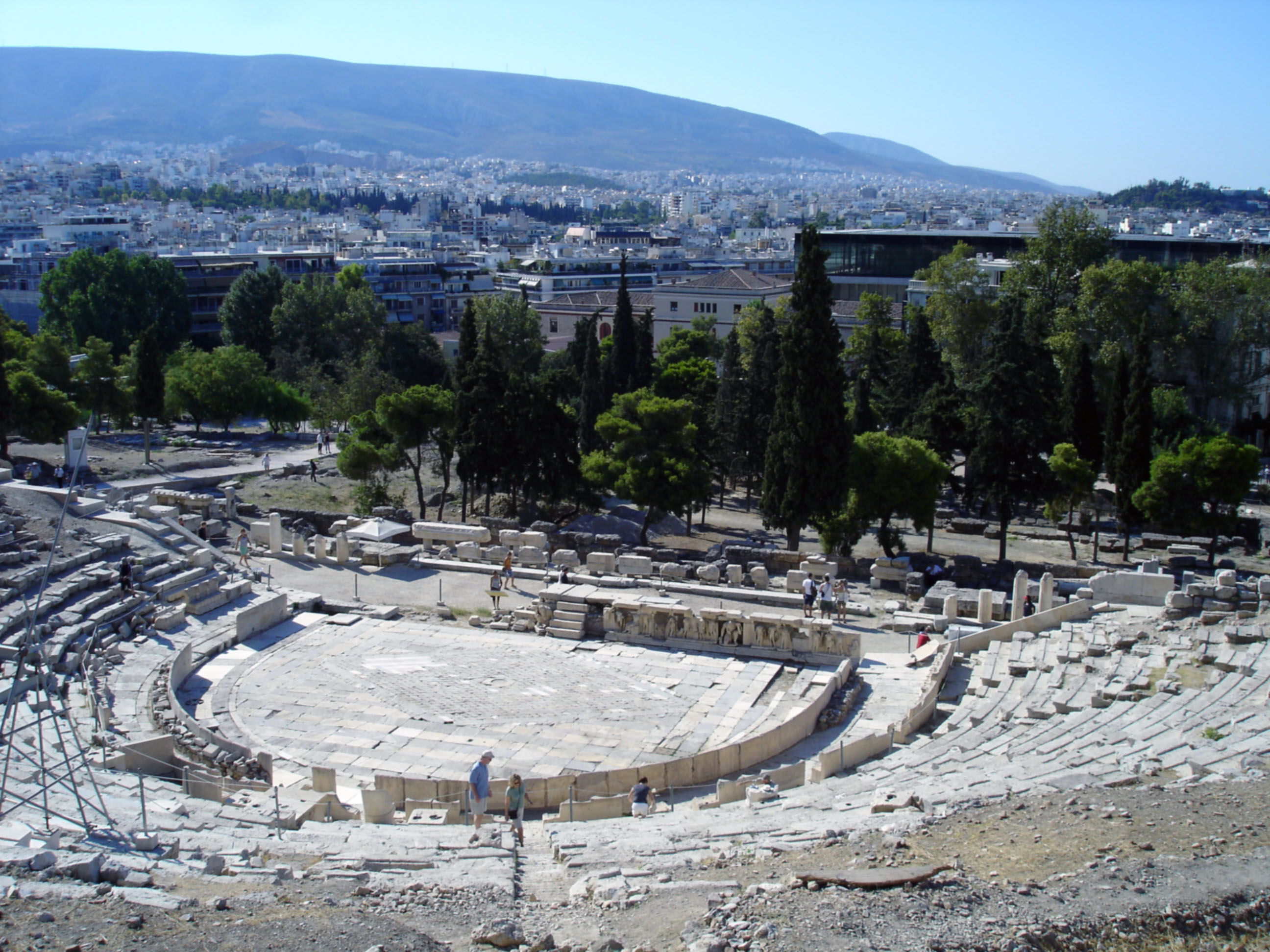Hey there,
So I haven't always been content with being a chorus boy. If you're not familiar, generally the chorus (or ensemble) is the body of performers who aren't "leads". The leads are usually the main characters whose story you follow and identify with over the course of the show. Now there are shows for which this isn't the case, so definitely don't think this is a required template, but obviously, I'm not referring to those.
But in olden times, the
Greek chorus was the meat of the presence on stage, and any characters were backing up the story as told by the chorus. Now I'm GROSSLY oversimplifying things, and might even be preaching to the choir (or chorus, in this case, hehe).
If you've seen Legally Blonde: The Musical, they makes use of the greek chorus conceit. And while I don't necessarily agree with the sentiment of the image and caption combo to the right, the essence of what a greek chorus did was one of the exciting elements of the show.
Me personally, it's probably one of the most challenging chorus roles I've had the privilege of tackling. And I've been fortunate to be involved with productions which have pushed me to explore aspects of being a performer that I haven't before.
The chorus straddles this line of narrator, character, and audience that's lovely for me, especially with the work I've seen and been involved in with storytelling. And for me, it's a neat reconnection to the roots of modern theatre.
If you don't know, while we're working with original music, courtesy of
Mariano Vales, the script we are working with is one by
Euripides, "one of the three great
tragedians of
classical Athens" (Wikipedia).
Wikipedia also has an entry on
Theatre of ancient Greece, and one of the REALLY neat facts? Theatre of ancient Greece, in Athens was "
institutionalized as part of a
festival called the
Dionysia, which honored the god
Dionysus".
 |
Theatre of Dionysus
Courtesy of Wikimedia |
And we've come full circle. It's kinda meta...could you imagine
The Bacchae, being performed at the
Theatre of Dionysus?
While that's neither here nor there, it's pretty neat being part of a show that was first performed a little over 2400 years ago...
But I digress. There's a reason theatre and the performing arts is still around, and is a part of every culture (as well as the arts in general). There is something timeless about the arts, and what we get from it, in experiencing it, in being part of it.
And it can be so easy to lose sight of that as artist or audience member, especially when sometimes you just want to be entertained, or do a fun show. I realize I might be projecting, but I remember in high school actually feeling like being cast in the chorus was a value judgement, in a not good way. Throughout college I realized that a strong chorus is just as important as strong leads, and professionally I relish being a member of the chorus or ensemble.
Being involved in WSC Avant Bard's production of
The Bacchae, one of the two shows WSC is putting up in
rep for 2012, has reinforced my chorus pride in a way that while I might've known, has never quite sunk in to such an extent.
So, if you're in the DC area between the middle of May and through June, definitely come check out this show at the
Artisphere. It's an awesome marriage of ancient text and original music, with a great chorus, and some pretty spectacular leads, too.
- JR

